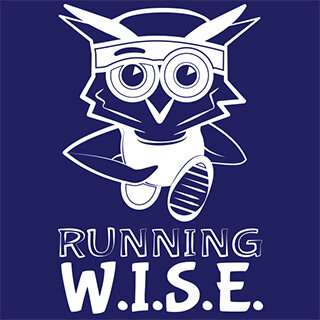Home » Health News »
Run is more than fun for students, elementary partners

Regular exercise is good for everyone, and youngsters stand to benefit most—if they stick to it.
Rice University researchers are figuring out how to encourage that tenacity. A new study by a team of kinesiologists matched undergraduate mentors at Rice with local fifth graders to get them to step up their games.
Though the numbers in this pilot study were small, the recruitment and retention of mentors and mentees was unbeatable: 100%.
Their study in the journal Recent Progress in Nutrition follows 22 pairs of mentors and elementary students from a single classroom in a pilot program called Running W.I.S.E.—With Interscholastic Student Engagement. It demonstrated qualitatively, through feedback through their mentors, that scheduled physical activity was indeed good for their physical health and mental well-being.
Surprisingly, it was just as good for the Rice students.
“We knew from other mentoring studies that there are definite benefits to the mentors as well as to the mentees,” said Laura Kabiri, an assistant teaching professor of kinesiology, who led the study. “But we were quite surprised to see just how much our students have benefitted—and also have a better idea of exactly how they benefited, rather than just saying, ‘Oh, it’s good for us to go do.'”
“As a college student, it’s really hard to set aside time to be physically active myself,” said Andrea Pineda, a senior kinesiology major whose mentee struggled with asthma during their early runs. “I know the program was meant for the students to benefit but it was also beneficial for me to get that 30 minutes of physical activity and enjoy conversation with him.”
She said the program encouraged her to keep running during the pandemic, a regimen she continues to follow five days a week.
Pineda said her mentee clearly benefited from the sessions as well. “At the very beginning it was tough to assess when we needed to keep going or slow down, or to stop and get his inhaler,” she said. “Towards the end he seemed to enjoy running more, and was less discouraged because he needed fewer stops.”
Kabiri noted teachers are too constrained to take on the job of one-on-one physical activities with their students, and may not have the training to do so. But the Rice-based mentors who did have the training and volunteered their time for credit reduced the burden on teachers.
“It really allowed the teacher to have a guaranteed period of time during the day when the kids were occupied, and doing healthy things,” Kabiri said.
Mentors received ethics and engagement training with school administration, technical training on activity trackers and background checks through the charter school involved in the program.
The study was cut four weeks short by the COVID-19 pandemic, running from January to March 2020, during which Rice students would visit their mentees twice a week for 30-minute runs, along with warmup and cooldown sessions.
Previous studies have suggested physical activity in childhood continues to help people as they become adults. The trick, Kabiri said, is getting the students to start down that path.
Source: Read Full Article


